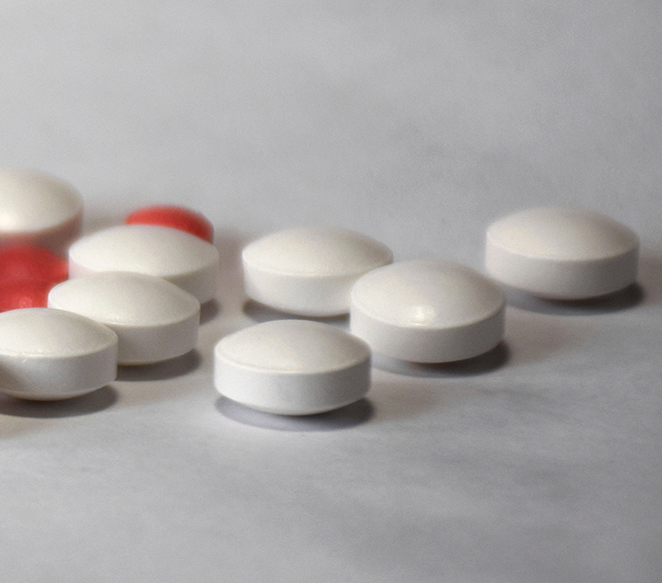
Home » Barbiturate Addiction and Abuse: Symptoms, Withdrawal, Detox, and Treatment
BARBITURATE ADDICTION: EFFECTS, WITHDRAWAL, DETOX, AND TREATMENT
- Authored by Joe Gilmore
- Clinically Reviewed by Jenni Busse
- Last Updated 04/19/2024
- By Joe Gilmore
- Reviewed by Jenni Busse
- 04/19/2024

WHAT ARE BARBITURATES?
Barbiturates are classified as a hypnotic sedative drug. They’re central nervous system depressants, which can help relax the muscles. Barbiturates are a synthetic medication that can also reduce heart rate and induce sleep, due to the content of barbituric acid in the drug. Typically, they’re used for insomnia, anxiety, and seizures. Barbiturates are often abused and are highly addictive.
Examples of barbiturates include Pentothal, Amytal (amobarbital), Butisol (butabarbital), Nembutal (pentobarbital), Seconal (secobarbital), belladonna andDonnatal (phenobarbital). Barbiturates can also come in a combination of butalbital, acetaminophen, or aspirin, and caffeine, under the brands Esgic, Fioricet, Fiorina, and Fortabs. If you or your loved one has an addiction to barbiturates, Gratitude Lodge can help.

WHY DO PEOPLE USE BARBITURATES?
Barbiturates – chiefly phenobarbital – are sometimes prescribed by physicians to treat:
- Epilepsy (seizure disorder)
- Convulsions
- Severe trauma to skull
- Increased pressure in skull
Barbiturates are also occasionally used as an anesthetic.
Off-label uses for barbiturates include:
- Alcohol poisoning and withdrawal
- Benzo poisoning and withdrawal
- Trauma
- Jaundice
- Migraines
While barbiturates were once prescribed to treat insomnia, this class of medication is now rarely used to treat sleep disorders.
Overall, the risk of adverse effects and poor outcomes means that barbiturates are now seldom prescribed in the United States.
Today, the barbiturate phenobarbital is commonly used to treat seizures.

HISTORY OF BARBITURATES
Barbiturates were used in the 60s and 70s for anxiety, insomnia, and seizures. Today, they are used for sedation before procedures. They are less frequently prescribed because of their highly addictive properties. Barbiturates were created in 1903 by altering a chemical compound found in apples. In 1912, amphetamines were added to the drug so users wouldn’t oversleep when using barbiturates.
Today, benzos are used instead of barbiturates to treat anxiety and sleep disorders. Barbiturates aren’t used as much anymore because there are safer, less addictive drugs available that don’t require a higher dose each time. They aren’t only abused to get “high.” Some barbiturates have been used as date rape drugs for their sedative effects.
BARBITURATE ADDICTION
The sustained use of barbiturates can cause tolerance to build. When this occurs, the effects of the medication diminish, prompting many people to increase the dose or the frequency of doses to achieve the initial effects. This can heighten the risk of overdose, potentially life-threatening in the case of barbiturates.
Additionally, tolerance and increased consumption of barbiturates will accelerate the development of physical dependence. If you become dependent on barbiturates, you will experience aggravating withdrawal symptoms if you moderate or discontinue use.
Ongoing barbiturate abuse can lead to addiction (sedative, hypnotic, and anxiolytic use disorder). Addiction to barbiturates is characterized by the compulsive use of the medication in the face of obviously negative outcomes.
Barbiturate addiction may develop as a result of sustained use of this class of medication for legitimate medical purposes. Beyond this, barbiturates are frequently abused. This drug delivers psychoactive effects similar to the effects of alcohol. Those abusing barbiturates feel relaxed, happy, less inhibited, and more talkative.
Abusing barbiturates, whether by swallowing, snorting, or injecting the substance, is dangerous and can trigger severe short-term and long-term complications, both physical and psychological, dependence. Barbiturate addiction and overdose can both be life-threatening.
ARE BARBITURATES ADDICTIVE?
Barbiturates have a high abuse potential. The sustained use of this CNS depressant can lead to the development of tolerance and dependence.
Many people taking barbiturates long-term – whether for medical use or for recreational use – become frustrated when tolerance forms. By taking higher doses of barbiturates or increasing the frequency of doses, this initiates abusive patterns of consumption. Increased consumption may accelerate the formation of physical dependence. Dependence is characterized by the presentation of severe withdrawal symptoms from 8 to 15 hours after discontinuing use.
Physical dependence on barbiturates often but not always leads to addiction. Barbiturate addiction is associated with pronounced psychological problems. Those who struggle with addiction to this class of medication often experience:
- Irritability
- Depression
- Anxiety
Barbiturate addiction is also liable to cause problems at home, at work, and in personal relationships. While addiction (substance use disorder) is a chronic and incurable condition, most addictions, including barbiturate addiction, respond well to evidence-based treatment. IF you find yourself asking the question “are barbiturates addictive?” it may be a strong sign that you are already dealing with a problem. Reach out to our team today for help.
Is Xanax a Barbiturate?
No, Xanax is not a barbiturate. It is a benzodiazepine, a different class of central nervous system depressant. While both medications have similar effects that include sedation and anxiety relief, they work differently in the brain and have different side effects, potencies, and risks. Learn more about the differences between barbiturates vs benzodiazepines on Gratitude Lodge’s blog site today.
Is Ambien a Barbiturate?
No, Ambien (zolpidem) is not a barbiturate. It is a sedative-hypnotic medication from a class of drugs called imidazopyridines. Ambien is used to treat insomnia, and works by increasing the activity of a neurotransmitter called GABA, slowing brain activity and promoting sleep. Barbiturates, on the other hand, are a class of drugs that were once widely used for their sedative, hypnotic, and anticonvulsant effects, but have largely been replaced by safer and more effective medications.
BARBITURATE DEPENDENCE
Barbiturate dependence often develops with the sustained use of this CNS depressant. This can prompt the need for increased doses of barbiturates to deliver the desired therapeutic or pharmacological effect.
The GABAA receptor – one of the primary sites of action for barbiturates – is believed to play a crucial role in the formation of tolerance and dependence on this class of medication.
The management of physical dependence on barbiturates involves stabilization using phenobarbital (a long-acting barbiturate), followed by a gradual tapering of dosage. This will reduce the intensity of withdrawal symptoms and mitigate the likelihood of seizures during detox.
Abruptly discontinuing the use of barbiturates without medical supervision is inadvisable and could be life-threatening.
WHAT ARE THE EFFECTS AND SYMPTOMS OF BARBITURATE ADDICTION?
Addiction is a chronic and relapsing brain condition clinically described as substance use disorder. Barbiturate addiction is one of ten substance use disorders recognized by DSM-5-TR and is known as sedative, hypnotic, or anxiolytic use disorder.
The diagnostic criteria for barbiturate addiction include some of these common barbiturate side effects:
- Frequent use of barbiturates resulting in significant functional impairment or distress in life.
- Intense cravings to use barbiturates.
- Reduced interest in important activities due to the use of barbiturates.
- Inability to moderate or discontinue use of barbiturates.
- Neglecting personal and professional commitments.
- Tolerance to barbiturates.
- Presentation of withdrawal symptoms after cutting down or discontinuing use of barbiturates.
Beyond those diagnostic criteria, there are many potential signs of barbiturate abuse. These include:
- Physical signs – appearing intoxicated, impaired balance, loss of coordination.
- Empty prescription bottles.
- Cognitive signs – confusion, lethargy, slowed thinking, severe sleepiness, memory loss.
- Psychological signs – anxiety, social isolation, disruptive behavior, irritability, apathy, depression.
Don’t Let Barbiturate Addiction Control You
LET US HELP YOU FIND YOUR NEW BEGINNING
BARBITURATE ADDICTION STATISTICS
According to this National Survey on Drug Use and Health:
- 923,000 U.S. adults reported past year use of sedatives like barbiturates.
- 227,000 over-18s reported using sedatives in the past month.
- Among these, 854,000 met the criteria for sedative addiction in 2021.
- Overdose deaths associated with barbiturates have increased since the 2000s, increasing 6-fold between 2002 and 2013.
- Barbiturate addiction often co-occurs with the abuse of other substances and mental health conditions.
BARBITURATE ADDICTION TREATMENT
The safest and most effective approach to barbiturate addiction treatment begins with a supervised medical detox. The sustained use of this class of medication causes the brain, body, and central nervous system to become dependent on barbiturates. Abruptly discontinuing use will cause severe withdrawal symptoms to manifest. Seizures associated with barbiturate withdrawal can be life-threatening.
During a clinical detox, medical professionals can administer medications to streamline withdrawal and monitor for any complications during barbiturate withdrawal.
Detox is not a substitute for treatment, but rather the first in an ongoing chain of events that comprises addiction recovery. After detox you can transition into an inpatient or outpatient program. Both types of program offer access to the same therapies, but with outpatient treatment you will return home between therapy sessions.
The most common treatment used for barbiturate addiction include:
- CBT (cognitive-behavioral therapy)
- MI (motivational interviewing)
- Individual counseling
- Group therapy
Detox helps you to conquer the physical issue of dependence, while ongoing treatment with behavioral therapies allows you to unpack the psychological component of barbiturate addiction.
BARBITURATE DETOX
Everyone will have a different experience of barbiturate withdrawal. The variables that influence detox and withdrawal from CNS depressants include:
- Age
- Metabolism
- Frequency of barbiturate use
- Last dose of barbiturates
- Duration of barbiturate use
- Half-life of type of barbiturate used
- Route of administration
- Additional substances used
- Substance use history
- Family history of addiction
- Tolerance
- Diet
- Support system
In most cases, barbiturate withdrawal lasts for one to two weeks. Those who have been chronically abusing the medication may experience more protracted withdrawal lasting for up to one month.
A typical barbiturate withdrawal timeline looks like this:
- Days 1 to 3: Withdrawal symptoms of nausea, vomiting, and anxiety will present. Sleep patterns will be disrupted.
- Days 4 to 7: On the fifth day of detox, symptoms will start subsiding. Cravings will persist, alongside insomnia, mood swings, and anxiety.
- Day 7 and beyond: Cravings for barbiturates may persist.
Barbiturate detox is always best managed in a clinical setting.
BARBITURATE WITHDRAWAL SYMPTOMS
One major danger of barbiturates is the withdrawal problems and symptoms that can occur when someone who uses the drugs suddenly stop. Some of the most common barbiturate withdrawal symptoms include:
- Fever
- Nausea
- Vomiting
- Anxiety
- Insomnia
- Exhaustion
- Aggression
- Restlessness
During a supervised medical detox, a treatment team will monitor for the following potentially severe barbiturate withdrawal symptoms:
- Circulatory failure
- Hallucinations
- Tremors
- DTs (delirium tremens)
- Seizure
- Death
Don’t Let Barbiturate Addiction Hold You Back
Recover from Addiction with Gratitude Lodge

Gratitude Lodge's Barbiturate Addiction Treatment Program
If you require help addressing an addiction to barbiturates, we can help you at Gratitude Lodge in Southern California.
As outlined, a supervised medical detox provides the smoothest pathway to ongoing treatment for sedative use disorder. We can help you achieve this at our licensed medical detox centers located in San Diego, Newport Beach, and Long Beach. With emotional and clinical care available around the clock, you can move beyond dependence on barbiturates, transitioning directly into an ongoing treatment program following detox.
Choose from the following treatment programs for barbiturate addiction:
- 30-day inpatient rehab
- IOP (intensive outpatient program)
- Dual diagnosis treatment program
All addiction treatment programs at Gratitude Lodge provide personalized care that draws from an array of science-backed therapies and holistic treatments. These may include:
- Psychotherapy
- Group therapy
- Motivational therapy
- Family therapy
- Holistic treatments
You will leave Gratitude Lodge equipped with a complete aftercare plan to strengthen your chances of sustained sobriety. This will include relapse prevention strategies, relapse management, coping techniques, and ongoing outpatient treatment if required. Many people step down to a less intensive form of treatment before transitioning back into everyday living.
When you are ready to move from barbiturate abuse and addiction into ongoing recovery, build the firmest foundation at Gratitude Lodge. Call 800-994-2184 today for help right away.
DRUG ADDICTIONS WE TREAT
Our Partners
WE ACCEPT MOST PPO INSURANCE
Drug and alcohol detox should be accessible to everyone. At Gratitude Lodge,
we work with most insurance plans to cover the costs of treatment.
BARBITURATE FAQS AND ANSWERS
Yes, it is possible to become addicted to barbiturates. Tolerance to this class of medication forms, and often leads to the development of physical dependence. Sustained abuse of barbiturates can lead to addiction in the form of sedative, hypnotic, or anxiolytic use disorder. The symptoms of sedative, hypnotic, or anxiolytic use disorder (barbiturate addiction) are delineated in DSM-5-TR (the latest revised edition of Diagnostic and Statistical Manual of Mental Disorders).
Barbiturates have a number of immediate effects on the body. They can cause drowsiness, reduce anxiety, and induce sleep. In higher doses, barbiturates can cause confusion, dizziness, and loss of coordination. Barbiturates may also slow breathing and heart rate, potentially provoking unconsciousness and even death in extreme cases. It is important to use barbiturates only as directed by a doctor and to avoid drinking alcohol while taking this medication, as this can heighten the risk of adverse effects.
A barbiturate is a type of CNS (central nervous system) depressant that has sedative, hypnotic, and anxiolytic properties. Some common examples of barbiturates include phenobarbital, pentobarbital, and secobarbital. These drugs are typically prescribed to treat conditions including anxiety, insomnia, and seizures, but they are also sometimes used as anesthetic agents or for recreational purposes.
Barbiturates and benzodiazepines are both CNS depressants that increase the activity of neurotransmitters in the brain. Barbiturates work by increasing the activity of the neurotransmitter GABA (gamma-aminobutyric acid), triggering an increase in inhibition and a reduction in excitability in the CNS. This results in sedation, anxiolysis, and hypnotic effects. Benzodiazepines also enhance the effects of GABA, although unlike barbiturates, benzodiazepines act specifically on a type of GABA receptor called the benzodiazepine receptor. This receptor is found in high concentrations in the CNS. Benzos trigger anxiolytic, hypnotic, anticonvulsant, and muscle relaxant effects.
Barbiturates are central nervous system depressants that slow brain activity. They can produce various effects, from mild sedation to deep sleep. Barbiturates are used medically to treat anxiety, insomnia, and epilepsy. In high doses, barbiturates can lead to overdose and death. Regular use can lead to physical dependence and withdrawal symptoms upon cessation of use. Use barbiturates only as directed by a doctor and not to exceed prescribed dosages.
The major danger of barbiturates is their potential for overdose and death. These drugs are potent and can cause respiratory depression. Respiratory depression can reduce oxygen supply to the body and brain. Overdose can result in unconsciousness and coma, and potentially death in severe cases. Additionally, barbiturates are habit-forming and can lead to physical dependence and withdrawal symptoms. Withdrawal symptoms can be severe and even life-threatening in a non-clinical environment.
No, Ambien (zolpidem) is not a barbiturate. It is a sedative-hypnotic medication from a class of drugs called imidazopyridines. Ambien is used to treat insomnia, and works by increasing the activity of a neurotransmitter called GABA, slowing brain activity and promoting sleep. Barbiturates, on the other hand, are a class of drugs that were once widely used for their sedative, hypnotic, and anticonvulsant effects, but have largely been replaced by safer and more effective medications.

















